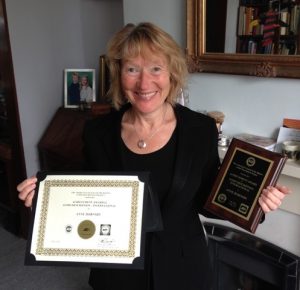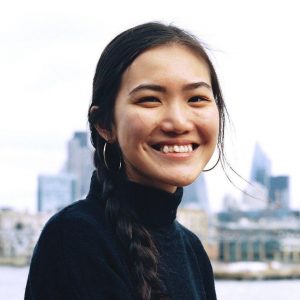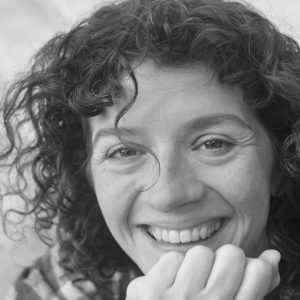A five-week programme comprise of a series of online accessibility training and live workshops for group discussion and feedback. The programme covers disability awareness, writing for different audiences, image and video accessibility, audio description and making your websites and social media accessible.
Why do you create art? Who do you want to reach with your work? How can you make your creations more accessible? By integrating access, how can you explore new ways to express your ideas and reconsider your audience?
In this 5-week online programme, we will work towards a way of developing and presenting work that are committed to accessibility and inclusion. We will explore how artists and curators can integrate access in their work – treating accessibility as an integral part of their creative process rather than an afterthought.
With a better understanding of different audience needs, artists gain practical skills to develop work that is accessible and provide a more inclusive environment. We will share tips, strategies and provide continuous feedback to help define and finesse the work by identifying your audiences, contexts, processes, research and challenges. As this reflective and collaborative programme covers a lot of ground, do expect to spend some time out of the training sessions to do short assignments. These assignments help artists put what they have learned into practice.
Our programme is delivered by art professionals, accessibility specialists and disabled artists with decades of experience and up-to-the minute practical, real world insights.
Duration: 5 weeks (2-4 hours per week)
When & key dates:
*All workshops will happen on Wednesday from 5pm to 7pm UK time, unless otherwise specified.
29 January - 1 March 2024 (Winter)
• Welcome session [31 Jan]
• Workshop 1: Introducing yourself and work to non-art audience by Celina Loh [14 Feb]
• Workshop 2: Making your work more accessible by Celina Loh [28 Feb]
29 April - 31 May 2024 (Spring)
• Welcome session [1 May]
• Workshop 1: Introducing yourself and work to non-art audience by Celina Loh [15 May]
• Workshop 2: Making your work more accessible by Celina Loh [29 May]
Language: English
What you will receive:
• specially designed, self paced online lectures on making your work more accessible
• online forum discussions to receive and exchange tailored feedback
• two online group workshops
By the end of the programme, you will be able to:
• understand real-life experiences of how accessibility is essential for some, and useful for all in varied art contexts
• identify a range of technologies that can help make desktops, laptops and mobile devices accessible e.g. screen readers, switch access technologies, speech input and braille input
• apply accessibility guidelines and access streams when creating accessible media, web content and documents including video captions, audio descriptions and more
• embed access when making work, treating it as a creative layer rather than a policy
After enrolling in the programme, you will have exclusive access to the programme content on our e-learning platform.
You will undertake online training sessions on accessibility in relation to arts and culture. There are five modules, each released weekly. Each module is accompanied with a short assignment which gives artists the opportunity to transfer the knowledge into practice and prepare them to create works that are more accessible for a diverse audience. Each module takes place over an entire week, therefore you have sufficient time to complete the tasks, participate and receive tailored feedback. On every step of the course you can share your ideas with other artists and join in with active discussions in our online forum.
In Transit will send you all the information you need one week before the programme start date. All workshops will happen from 5pm - 7pm on Wednesdays, following the specified dates. Recordings to the workshops will be available for access purposes and for artists who cannot attend.

Anne Hornsby
Anne Hornsby, winner of two major awards and UK audio description pioneer, has been audio describing since 1988. She set up Mind’s Eye in 1992 to offer audio description services for theatre, ballet, opera, film, galleries, museums, online arts and more. She is an accredited Audio Description Trainer and is on the Executive of the Audio Description Association. Anne has had a parallel career in Marketing and Audience Development in the Arts and was the editor of the Arts Council publication Action for Access.

Andrew Ronksley
Andrew is a freelance accessibility specialist with 15 years industry experience working in digital accessibility and assistive technology at Ministry of Justice, Apple, RNIB, Sainsbury's amongst many others. He is an experienced accessibility trainer, mentor, tester, UX designer and developer. Andrew is also the organiser of the London Accessibility meetup.
 Celina Loh
Celina Loh
Celina is an independent curator and writer with extensive developing exhibitions and public progammes from concept through to installation across the UK and internationally. She supports artists and organisations with delivering accessible, inclusive and engaging programmes and content including WEGO-ITN, University of Brighton, The Higgins Bedford amongst others. She is also Project Assistant at FRANK Fair Artist Pay. Celina holds an MA in Curating and Collections (Distinction) from Chelsea College of Arts and a BA (Hons) in Fine Art and Creative Writing from Lancaster University.
 Minnie Scott
Minnie ScottOur five-week accessibility training covers the following topics:
Module 1: Introduction to Accessibility
Key themes include:
• Different types of disabilities
• Demos of assistive technology
• Importance of accessibility
• Communicating with disabled people
Module 2: Understandable Content
Key themes include:
• Understanding your audiences
• Clear and simple language
• Types of art text
• Formatting texts
Module 3: Image and video accessibility
Key themes include:
• Alt text and image descriptions
• Captions and transcripts
• Considerations for moving images and animations
Module 4: Audio Descriptions (AD)
Key themes include:
• Writing and presenting AD
• Audio described tours
• Audio describing videos
Module 5: Website and Social Media
Key themes include:
• Headings and page reading order
• Colour contrasts
• Typography considerations
• Tips for accessible artist websites and social media
This is an introductory course aimed both at artists and curators who want to consciously shape their practice to be more accountable, self-reflexive and inclusive.
Our applicants usually hold a degree in Fine Art or a related field. However, we also consider applications from self-taught artists who demonstrate relevant experience in the art/creative sectors and a keen interest in making their work more accessible.
We have an application process to ensure adequate attention for our course participants, and that we can best support you with our resources.
Participation fee:
Standard: 600 GBP
Limited income/people on benefits: 300 GBP
Important information:
"The programme has totally changed how I think about and want to move forward with my art practice. In Transit’s programme has opened up an important issue [about arts access] which I have not encountered directly and am less informed about. As a digital art practitioner and co-founder of a new media art collective, it has shown me that accessibility does not only affect art in galleries but also digital art. The training residency has made me realise and put to practise the efforts that I can take to ensure my art is more accessible, both physically and digitally. Thanks to the programme, I am also now more connected with artists from different countries and of diverse backgrounds and skillset." - Abdul Shakir (Grasshopper), artist and co-founder of Filamen